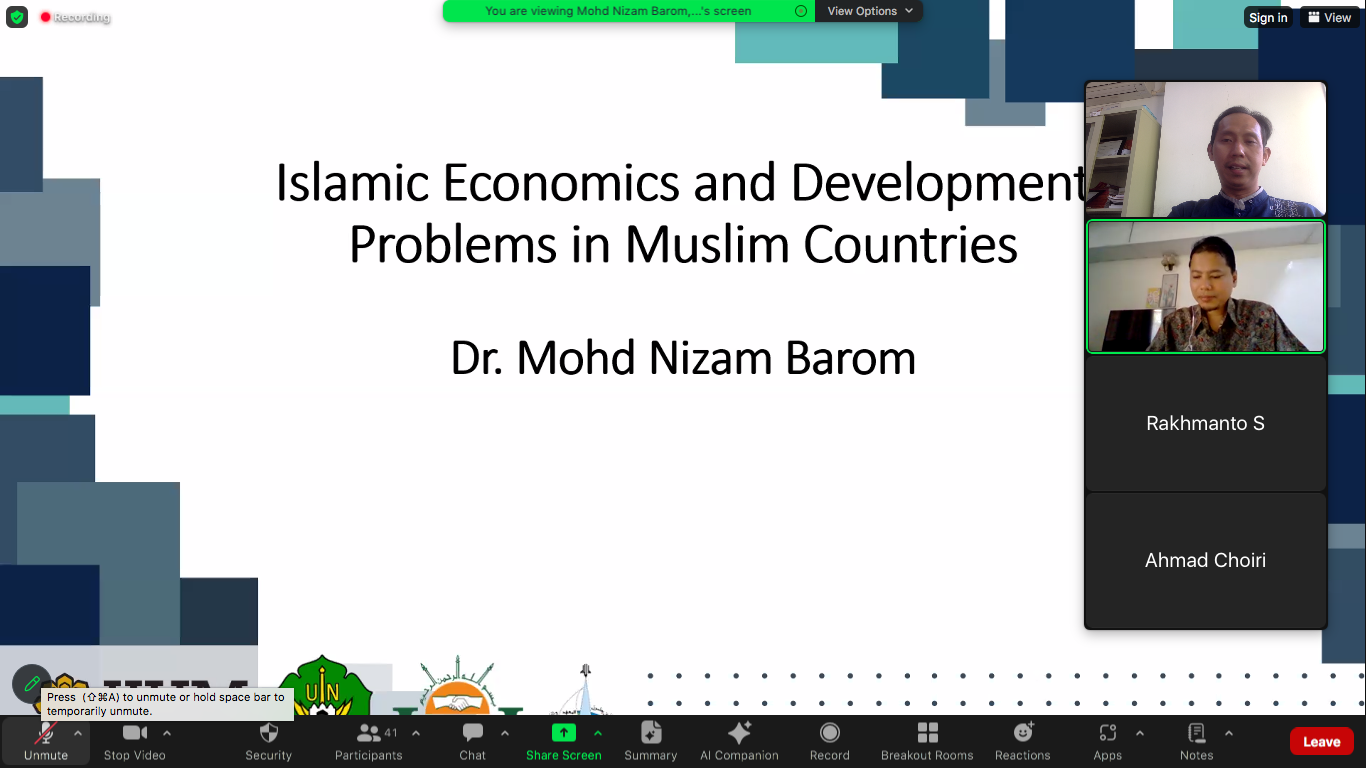The Public Lecture of MES Study Program: Islamic Economics and Development Problems in Muslim Countries

Over the past few years, the global development of Islamic economics has demonstrated significant progress. This is evident in the adoption of Islamic economic values and systems by several countries, including Indonesia. As a nation with one of the world's largest Muslim populations, Indonesia holds substantial potential and opportunities for the implementation of Islamic economics. In addition to the majority of Indonesia’s population being Muslim, the discourse on demographic bonus serves as a strategic catalyst for propelling Islamic economics in the country. The rapid population growth fosters a more innovative society, thereby diversifying Islamic business and finance within Indonesia.
Development challenges persist in every country, accompanied by the escalating economic inequality. Byayima (2016) reported that in 2010, 388 individuals held wealth equivalent to half of the world’s population. By 2015, this number had dwindled to 62 individuals.
Chapra (1993) asserts that all Muslim countries are developing countries and often encounter numerous challenges. These issues commonly encompass macroeconomic imbalances characterized by prolonged currency depreciation, substantial balance of payments deficits, elevated unemployment and inflation rates, persistent currency devaluation, substantial debt burdens, and pronounced social income disparities, which frequently contribute to social and political instability.
Therefore, the Islamic Economics Master’s Program FEBI UIN Sunan Kalijaga held a public lecture under the theme “Islamic Economics and Development Problems in Muslim Countries,” featuring Assoc. Prof. Dr. Mohd. Nizam Bin Barom from IIU Malaysia as the speaker. The event took place online on Friday, October 27, 2023. This initiative is expected to foster the exchange of ideas and insights concerning the advancement of Islamic economics and the diverse development challenges encountered by Muslim countries.
